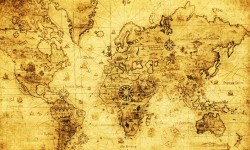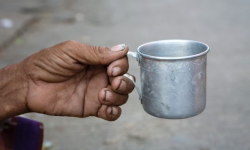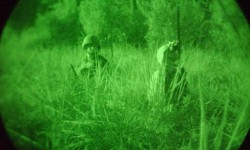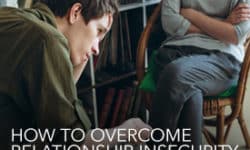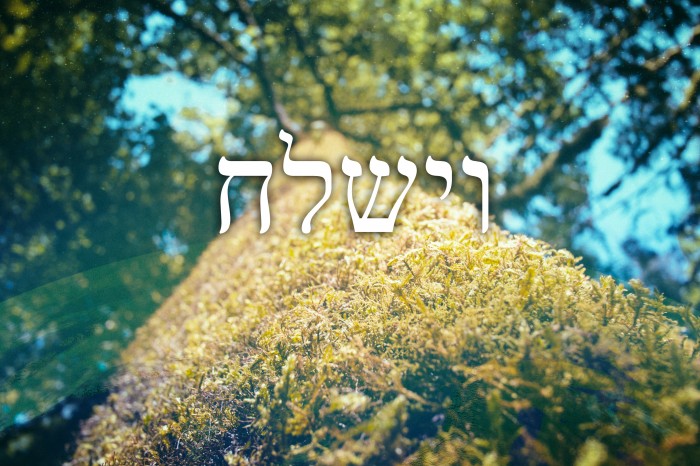
Vayishlach
To reach someone else, usually you have to reach out of yourself.
Jacob sends peace ambassadors to his brother Esau. They report that Esau is on a war march, four hundred warriors strong. Jacob girds for battle, devotes in prayer, and bestows gifts upon Esau. Wrestling with an angel leaves Jacob limping and with a new name: Israel. Jacob – or Israel – and his brother Esau reconcile. Innocence is violated by evil. Two tribes, Simeon and Levi, uproot the evil in its entirety. Rachel gives birth to the youngest of the 12 tribes. Soon thereafter, Rachel passes away on the road near Bethlehem. Jacob returns to Hebron. His father Isaac ascends this physical world at the age of 180. Esau’s progeny and the kings of Edom conclude the narrative.
Vayishlach: Hypocrisy
When it comes to behavior on a day-to-day level, we all fall short of our own standards.
Read MoreThe Dust of History
The cosmic struggle to reconcile spirit and matter are captured in the story of Jacob and Esau and the battle between these two opposing forces.
Read MoreVayishlach: Giving In Difficult Times
The words of the Zohar speak for themselves. They tell us in no uncertain terms that we must stand against any voice and challenge (including economic conditions) that argues against supporting (or weakening our support of) good causes.
Read MoreVayishlach: Hypocrisy
Instead of seeing hypocrisy in our inconsistencies, we should be seeing in them our struggle to discover our true selves—a struggle that inevitably creates a dichotomy between what you believe and what you do.
Read MoreThe Three Lives of Jacob
Our own moments of transcendence seem fleeting and inconsequential in comparison with Jacob’s decades of tranquil perfection in the Holy Land; our own struggles seem wan and inept when measured against Jacob’s Charan years; our own lives under circumstances of subjugation and oppression seem black indeed when set against Jacob’s Egyptian period. Yet the three lives of Jacob are “signposts” that guide, inspire and enable our own.
Read MoreA Tale of Two Cities
Rabbi Shneur Zalman, an accomplished scholar and mentor to many disciples, teaches us the significance of Prayer.
Read MoreThe Rain of Peace
Rain is an expression of human initiative and endeavor; the reflection enables us to answer Divine light in our lives with the product of our own potential.
Read MoreThe Disposable Self
The closer one comes to G-d, the more one realizes one’s own insignificance in the face of the divine infinity.
Read MoreDouble Identity
Discover how we, as Jews, contain both elements of the name Jacob and Israel. Learn about our double identity as Servants of G-d and Children of G-d.
Read MoreElectric Light
The elementary principle of Chassidism: to draw down and connect the ultimate heights with the lowest depths.
Read MoreAn Unreasonable Source
Our every mitzvah should be saturated with the self-sacrifice and depth of commitment that motivated Shimon and Levi.
Read MoreThe Dislocated Hip
By remembering Jacob’s wound we sensitize ourselves to the fact that mindless immersion in material existence touches a nerve which leaves us wounded.
Read MoreA Mother’s Tears
Rachel exemplifies compassion and enables us to recognize our inherent value by virtue of the fact that every single person was created in the Divine Image.
Read MoreNight Stalkers
The stranger was Esau’s guardian angel, and the battle represented the struggle between Jacob and Esau, archetypes of the two polar forces in existence which stand in perpetual battle.
Read MoreThe Big Confrontation – Jacob & Esau Meet
Each of us must ask ourselves the question: Is my material life aligned with my spiritual one? Have I integrated what I do with who I am?
Read MoreIt’s All in the Details
G-d is in the details. Discover how small little matters contain the ultimate greatness, but only when they are infused with vision.
Read MoreIs the World Getting Better or Worse?
Reveal new ways to look at your life and the world around you. Learn how you can be a force that helps shape our collective and individual destiny.
Read MoreGood and Bad Angels: The Forces in Our Lives
Discover angels’ relevance to our lives, how we can control our destinies by creating good and bad angels, and how they impact all our interactions.
Read MoreHow to Overcome Relationship Insecurity
Join on a journey deep into your inner psyche, reaching places that you may have previously not seen and where you can celebrate your vulnerability.
Read MoreA Mother’s Tears: What Rachel Teaches us About Maternal Love
What is true, eternal love? In this week’s Torah Portion, Vayishlach, we read the story of Rachel’s sad death in childbirth, giving her life for her newborn child. This personifies her historical role as the quintessential mother who would sacrifice herself for her children, throughout the ages, until the end of time.
Read More






